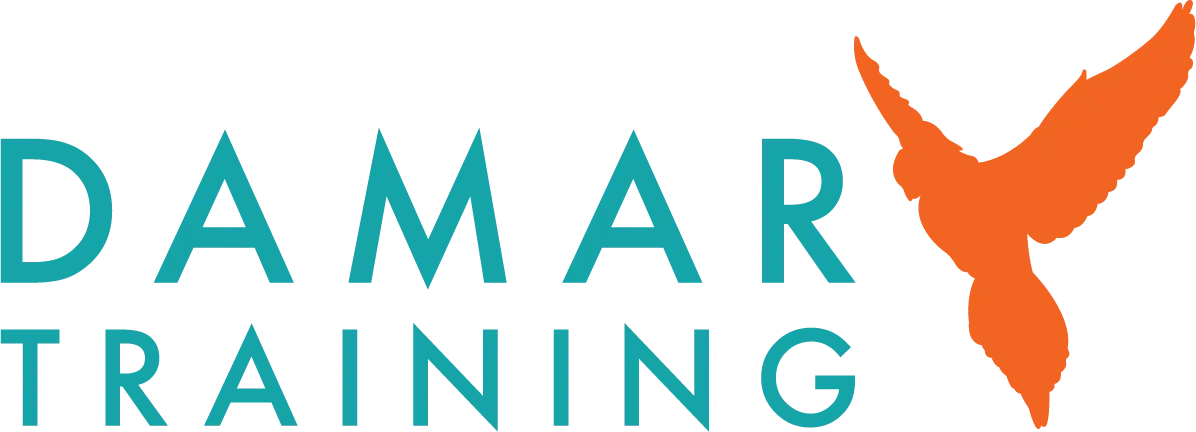Accounting Apprenticeships
Level 2, 3 and 4 Accounting Apprenticeships
Our accounting apprenticeships have been designed to develop well-rounded accounting professionals who are technically competent and have the wider business and interpersonal skills to make a positive impact in the workplace. Our current programmes are:
Accounts or finance assistants work in accountancy firms and in-house, assisting the finance function with junior accounting duties. These vary but could include basic bookkeeping activities, working with sales and purchase ledgers, running calculations to ensure that records and payments are correct, recording of cash and data entry.
Assistant accountants support internal and external customers and work in accountancy firms or the finance functions of organisations. The role will involve assisting in the day-to-day financial activities such as data entry, month-end management accounts and/or year-end financial statements. Assistant accountants may also become involved in regulatory financial requirements such as the completion of VAT returns or assisting in the preparation of tax computations.
Professional accounting technicians apply their knowledge and skills to accounting activities, including supporting senior accountants, providing timely financial reports, ensuring compliance with internal controls and meeting the relevant ethical, professional and regulatory standards.
The benefits of accounting apprenticeships
An investment in an apprentice can make a real impact on your organisation. A motivated and inspired individual can strengthen your company’s reputation for talent development, enhance the skills in your finance team, and even boost morale. Some more of the core benefits of an accounting apprenticeship include:
- Increased accounting support: Investing in an apprentice can free up time for managers and senior accountants, allowing them to complete more strategic tasks
- Improved team morale: Offering apprenticeships shows your commitment to employee development, which can add a fresh perspective and an entrepreneurial spirit
- A more diverse workforce: Apprenticeships can be a route to diversifying your workforce by offering opportunities to individuals from different backgrounds.
Discover more benefits from our employer partners.

Discover the Damar approach
At Damar Training, our extensive experience in accounting apprenticeships allows us to partner effectively with employers to deliver long-term value. What sets us apart is our passion and dedication to building stronger finance teams by supporting motivated individuals to excel in accountancy.
- Our resources: We deliver high-quality online and paper-based resources, provided by Kaplan, and deliver specialist workshops structured for AAT
- Our people: All of our AAT subject specialists are qualified and experienced accounting professionals.
- Our processes: Damar’s integrated approach ensures a seamless enrolment and onboarding experience that seamlessly transitions into well-paced learning modules
- Our systems: We make learning easy to access thanks to our engaging systems, including OneFile, Profiler, Damar OpenLearning, and our apprentice discussion forums.



“The accounting apprentices at provide invaluable day-to-day support to our teams. They use and build upon their learning, adding immediate value to our business. These apprenticeships allow for future progression within our firm and they are helping to shape our future workforce.
Claire Dowd
Finance Operations Assistant
Pinsent Masons
Delivery of our accounting apprenticeships
Wondering what to expect from an accounting apprenticeship with Damar? We recognise the need for a well-structured and clear learning journey, which is why our programmes have been designed to be both engaging and comprehensive for aspiring accountants. Our AAT accounting apprenticeships delivery involves:
- Pre-work: Apprentices will work through reading or video content relating to a specific module
- Main learning: The apprentice will participate in self-directed and interactive content that is available on our online learning platform
- Individual learning activity: Apprentices will work through an activity brief, building evidence as they go to support their portfolio and end-point assessment. This activity will allow the apprentice to embed and contextualise their learning and show off their skills
- 1:1 coaching visit: The Damar coach will meet with the apprentice to review their progress, discuss their personal development, and sign off on completed modules
- Review meeting: Every 12 weeks, the Damar coach will meet with the apprentice and their line manager to review progress
- AAT knowledge content: All AAT knowledge units are underpinned by live workshops, which are delivered by sector experts and include high-quality online resources.
16 months
People of all ages and educational backgrounds can undertake accounting apprenticeships, but there are some restrictions, the most important of which are:
- The employer and the training provider must ascertain that the apprenticeship will allow the individual to gain substantive new skills.
- The apprenticeship must align with the skills needs of the apprentice’s role.
- The apprentice must be employed, usually for 30+ hours a week, and work more than 50% of their time in England.
The programme is made up of apprenticeship modules and AAT knowledge training units.
The apprenticeship modules help apprentices learn and apply the knowledge, skills and behaviours required for each of the core occupational duties undertaken by accounts or finance assistants.
- Digital tools and data security
- Effective business communication
- Professional practices and adaptability
- Professionalism and teamwork in finance
- Sustainability and professional conduct.
The AAT accountancy knowledge training is delivered in between the modules above, typically:
- Introduction to bookkeeping
- Principles of bookkeeping controls
- Principles of costing
- Business environment synoptic
Employer partners and apprentices are supported throughout the apprenticeship. The apprentice has a dedicated coach who provides 1:1 support, alongside the group coaching sessions and apprentice forums where they can engage with other appentices on the same programme. Review meetings with the apprentice, line manager and coach are held every 12 weeks.
Apprentices with additional learning needs also have the opportunity to meet with our SEN Co-ordinator, who will put together a personalised support plan.
In addition, employer partners have a business development manager/executive they can contact at any time.
All apprenticeships embed the functional use of maths and English as well as personal development topics in areas such as equality and diversity and British Values. Apprentices unable to evidence maths and English at GCSE grade 4 or above may need to take functional skills exams as part of the apprenticeship. Additional training is provided if necessary.
Business environment synoptic exam and structured interview.
Most students progress through our accountancy apprenticeship pathway, from level 2 accounts and finance assistant to level 4 professional accounting Technician. More experienced apprentices may be able to start at level 3 or level 4. After level 4, apprentices often progress to chartered accountant status. Successful completion of the AAT Professional Diploma in Accounting (level 4) grants generous exemptions with ACCA, ICAEW, CIMA, ICAS and CIPFA.
All apprenticeship costs at level 2 are covered within the funding band.
If your annual UK wage bill is over £3 million, the cost of training can be funded via the Apprenticeship Levy. We can help you navigate your Apprenticeship Service account to access this funding.
If your annual UK wage bill is below £3 million, the government covers 95-100% of the training costs.
For apprentices aged up to 21, the apprenticeship is fully government-funded*. For apprentices aged 22 and over, the apprenticeship is 95% government-funded*. These new funding rules are applicable to apprentices starting from 1 April 2024.
*Please note: Some apprenticeships have accreditation costs which are not eligible for government funding
We have regular start dates throughout the year for our apprenticeships. Please see our schedule page for more information.
17 months
People of all ages and educational backgrounds can undertake accounting apprenticeships, but there are some restrictions, the most important of which are:
- The employer and the training provider must ascertain that the apprenticeship will allow the individual to gain substantive new skills.
- The apprenticeship must align with the skills needs of the apprentice’s role.
- The apprentice must be employed, usually for 30+ hours a week, and work more than 50% of their time in England.
Generally, apprentices will have needed to complete a level 3 AAT qualification.
The programme is made up of apprenticeship modules and AAT knowledge training.
The 6-week apprenticeship modules help apprentices learn and apply the knowledge, skills and behaviours required for each of the core occupational duties undertaken by assistant accountants.
- Module 1: Personal development & self-awareness
- Module 2: Understanding organisations and their context
- Module 3: Building organisational knowledge and IT skills
- Module 4: Understanding regulatory environment and ongoing learning
- Module 5: Enhancing time management skills
- Module 6: Effective teamwork and communication
- Module 7: Cultivating change resilience
- Module 8: Decision-making fundamentals
- Module 9: Understanding and meeting employer expectations
- Module 10: Improvement proposal
The AAT accountancy knowledge training is delivered alongside the modules above, typically:
- Business awareness (11 weeks)
- Tax processes for businesses (9 weeks)
- Financial accounting: preparing financial statements (14 weeks)
- Management accounting techniques (10 weeks)
Employer partners and apprentices are supported throughout the apprenticeship. The apprentice has a dedicated coach who provides 1:1 support, alongside the group coaching sessions and apprentice forums where they can engage with other appentices on the same programme. Review meetings with the apprentice, line manager and coach are held every 12 weeks.
Apprentices with additional learning needs also have the opportunity to meet with our SEN Co-ordinator, who will put together a personalised support plan.
In addition, employer partners have a business development manager/executive they can contact at any time.
All apprenticeships embed the functional use of maths and English as well as personal development topics in areas such as equality and diversity and British Values. Apprentices unable to evidence maths and English at GCSE grade 4 or above may need to take functional skills exams as part of the apprenticeship. Additional training is provided if necessary.
Knowledge test and a professional discussion (supported by a portfolio of evidence) with an independent assessor.
Most students progress through our accountancy apprenticeship pathway, from level 2 accounts and finance assistant to level 4 professional accounting Technician. More experienced apprentices may be able to start at level 3 or level 4. After level 4, apprentices often progress to chartered accountant status. Successful completion of the AAT Professional Diploma in Accounting (level 4) grants generous exemptions with ACCA, ICAEW, CIMA, ICAS and CIPFA.
All apprenticeship costs at level 3 are covered within the funding band.
If your annual UK wage bill is over £3 million, the cost of training can be funded via the Apprenticeship Levy. We can help you navigate your Apprenticeship Service account to access this funding.
If your annual UK wage bill is below £3 million, the government covers 95-100% of the training costs.
For apprentices aged up to 21, the apprenticeship is fully government-funded*. For apprentices aged 22 and over, the apprenticeship is 95% government-funded*. These new funding rules are applicable to apprentices starting from 1 April 2024.
*Please note: Some apprenticeships have accreditation costs which are not eligible for government funding
We have regular start dates throughout the year for our apprenticeships. Please see our schedule page for more information.
21 months
People of all ages and educational backgrounds can undertake accounting apprenticeships, but there are some restrictions, the most important of which are:
- The employer and the training provider must ascertain that the apprenticeship will allow the individual to gain substantive new skills.
- The apprenticeship must align with the skills needs of the apprentice’s role.
- The apprentice must be employed, usually for 30+ hours a week, and work more than 50% of their time in England.
Generally, apprentices will have needed to complete a level 3 AAT qualification.
The programme is made up of apprenticeship modules and AAT knowledge training.
The apprenticeship modules help apprentices learn and apply the knowledge, skills and behaviours required for each of the core occupational duties undertaken by assistant accountants.
- Teamworking
- Ways of working
- Data analysis
- EDI and ESG
- Quality improvement
- EPA preparation
The AAT accountancy knowledge training is delivered in separate units:
- Business tax
- Optional unit: Audit and assurance, personal tax, cash and financial
management or credit and debt
management - Drafting financial and interpretating
statements - Management accounting
- Internal accounting systems and controls.
Employer partners and apprentices are supported throughout the apprenticeship. The apprentice has a dedicated coach who provides 1:1 support, alongside the group coaching sessions and apprentice forums where they can engage with other appentices on the same programme. Review meetings with the apprentice, line manager and coach are held every 12 weeks.
Apprentices with additional learning needs also have the opportunity to meet with our SEND Co-ordinator, who will put together a personalised support plan.
In addition, employer partners have a business development manager/executive they can contact at any time.
All apprenticeships embed the functional use of maths and English as well as personal development topics in areas such as equality and diversity and British Values. Apprentices unable to evidence maths and English at GCSE grade 4 or above may need to take functional skills exams as part of the apprenticeship. Additional training is provided if necessary.
Professional discussion (with no portfolio requirement) and a multiple choice test.
Most students progress through our accountancy apprenticeship pathway, from level 2 accounts and finance assistant to level 4 professional accounting technician. More experienced apprentices may be able to start at level 3 or level 4. After level 4, apprentices often progress to chartered accountant status. Successful completion of the AAT Professional Diploma in Accounting (level 4) grants generous exemptions with ACCA, ICAEW, CIMA, ICAS and CIPFA.
If your annual UK wage bill is over £3 million, the cost of training can be funded via the Apprenticeship Levy. We can help you navigate your Apprenticeship Service account to access this funding.
If your annual UK wage bill is below £3 million, the government covers 95-100% of the training costs.
For apprentices aged up to 21, the apprenticeship is fully government-funded*. For apprentices aged 22 and over, the apprenticeship is 95% government-funded*. These new funding rules are applicable to apprentices starting from 1 April 2024.
*Please note: Some apprenticeships have accreditation costs which are not eligible for government funding
We have regular start dates throughout the year for our apprenticeships. Please see our schedule page for more information.
Unlock your potential with Damar
Establish a robust and skilled accounting team that drives your organisation forward with the support of our accounting and finance apprenticeships. At Damar, we offer tailored apprenticeship programmes and have been doing so for over 40 years.
Whether you’re interested in accounting apprenticeships, or one of our other programmes, such as solicitor or paralegal, please get in touch. A member of our team will be more than happy to chat with you.
Accountancy apprenticeship FAQs
If you pay the apprenticeship levy, then you can use your funds to pay for apprenticeship training. For non-levy payers and SMEs, the government will fund 95-100% of the training costs.
As an employer of an accounting apprentice, you’ll need to provide relevant experience, whilst ensuring that the apprentice has time for off-the-job training (as set out in their training plan). You will also need to pay them a wage, provide a safe working environment, and support their progress.
Apprentices can progress through levels 2, 3 and 4 of Damar’s accounting pathway. In many cases, successful level 3 apprentices can go on to apply for a Bookkeeping Membership (AATQB) with AAT, and successful level 4 apprentices can apply for Full Membership (MAAT) with AAT.
Yes, an accounting apprentice from Damar is highly likely to add significant value to your team. As well as our list of benefits above, a Damar-trained individual injects enthusiasm and new ideas and offers fresh perspectives. Have a read of our accounting apprenticeship benefits guide to find out more.
If we haven’t answered your question above, have a read of our employer FAQs for more information.



